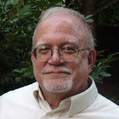“Sticks and stones may break my bones but names will never hurt me.” We all remember this phrase from childhood and its relevance is clear as we think about recent events in Paris.
The publication in “Charlie Hebdo” of a cartoon of the Prophet Muhammed raises issues beyond free speech. The violent murder of staff at “Charlie Hebdo” is rightly condemned.
These events in Paris raise the issue of the power of words. Words and images can hurt, insult and deeply offend. They are sometimes powerful in the feelings they evoke. But that is the point—they evoke feelings but do not harm the way physical assault does.
Words and images arise from thoughts and feelings that will not go away because we try to outlaw their use. Banning words and images does not work any better than banning thoughts.
As I’ve said, some words and images evoke very strong negative reactions in others. This means that I should not say everything I may think or feel. Self-restraint in my expression is important in family life as well as in the Public Square.
Of course, there will always be those who will not or cannot resist saying offensive and hurtful things. When this happens the perpetrator should be subject to harsh social, but not legal, sanction.
Some say certain words should be banned in public because they give extreme offense or may incite violence. The power of such words is actually reduced if we realize that we will sometimes feel offended in life but that we do not have to react with violent action. This realization reduces the power of the words and enhances our sense of personal power and control. Once we realize this then we can again say “Sticks and stones may break my bones but names will never hurt me.”
























